Advertisement
BBC's 'Route 1: USA' And England's World Cup '94 Fantasy Ride
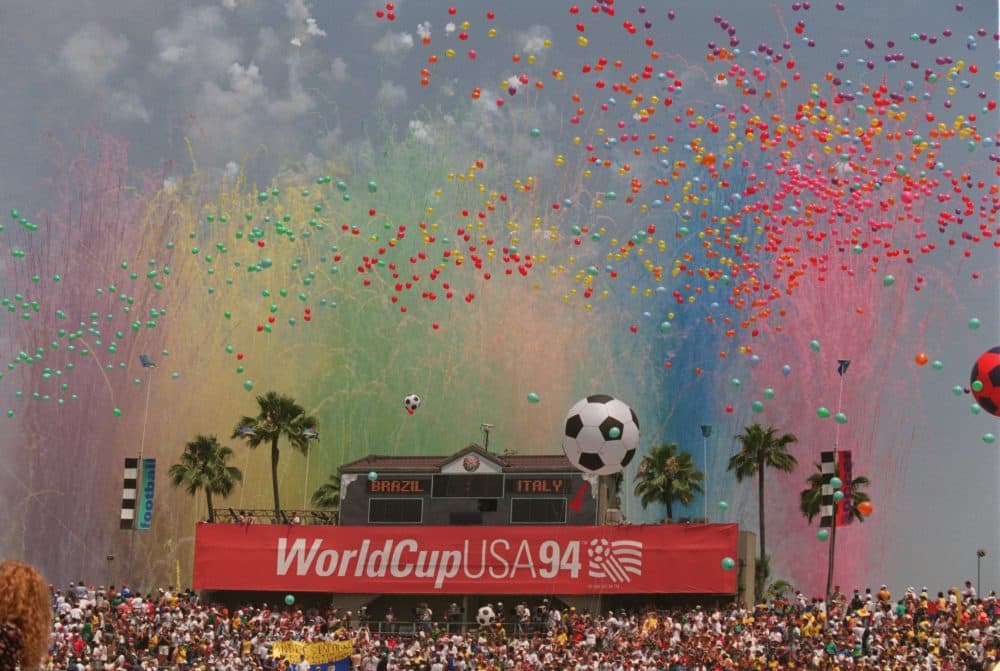
In 1994, the United States hosted the World Cup. It was great fun, coast to coast, especially for a fledgling public radio sports program.
One of my favorite stories to emerge during the ’94 World Cup involved a real team that failed to qualify for the event ... and its imaginary counterpart.
As the days of my tenure with the Only A Game squad dwindle down, I thought it might be fun to reconnect with one of the people at the center of that story, producer Richard Wilson, then employed by the BBC’s Light Entertainment Division. The idea came to him in November of 1993.
"I was watching the qualifying game," Wilson says.
Of course he was. Richard’s a soccer fan. And this particular qualifier saw England playing away against unimpressive San Marino, with England in danger of failing to book a summer trip to the U.S.
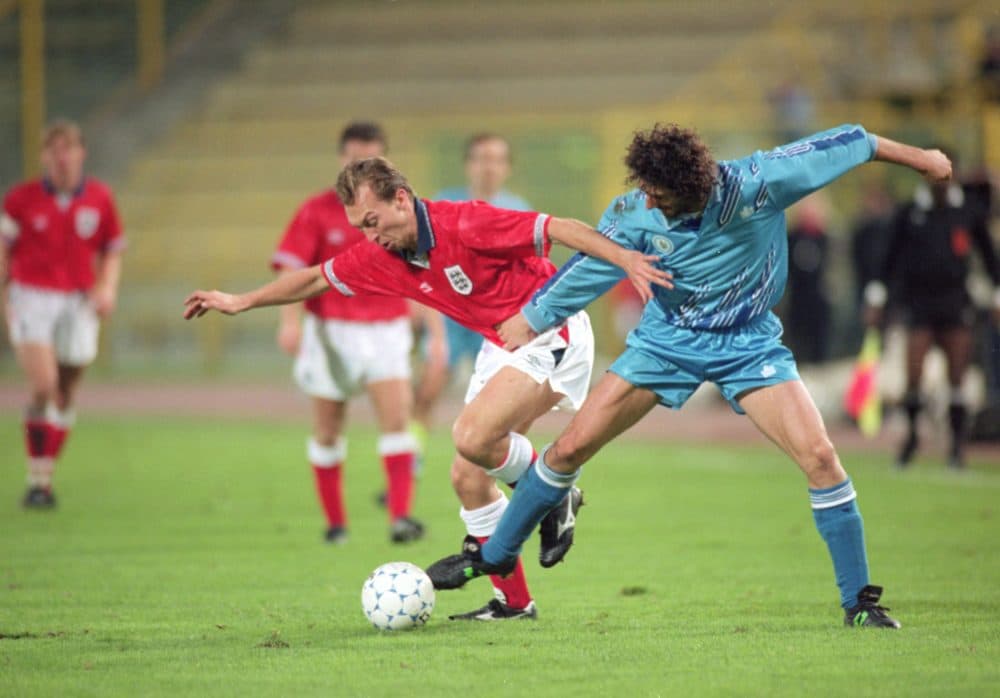
"They had to beat San Marino by seven clear goals and hope that Holland didn’t win," Wilson recalls. "And I was watching it with lots of people at a pub, and San Marino had never scored an international goal. And they scored against England in the first 20 seconds. And everyone in the pub just burst out laughing. I mean, England did go on to score seven goals. But because they’d let this one in in the first minute, they didn’t go through. But everyone in the pub was just laughing about it."
Richard Wilson must have heard the pain beneath that laughter. How else to account for his near-instant recognition that, absent a team for which to cheer, dismayed soccer fans in England would need a reason to smile? Thus was born the radio drama Wilson and his team of writers called "Route 1: USA."
"It was like being paid to make a model airplane or something like that," Wilson says. "It was great fun."
Mysterious Group G And Mr. Goal
The premise of the radio drama was that mere days before World Cup ’94 was to begin, FIFA mysteriously decided to add one more group of four teams to the tournament. Group G would consist of Australia, Wales, France ... and England.
In a mad flurry of astonishing creativity, England’s Football Association arranged for one of the elements essential to any nation’s World Cup campaign: a mascot. Early in "Route 1: USA," presenter Jeremy Nicholas interviews the man responsible for that element.
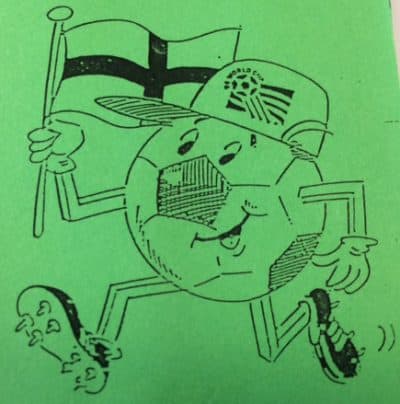
Nicholas: Simon, tell me exactly how did Mr. Goal come about?
Simon: Oh, uh, well, the FA got in touch last Friday night. And I sketched out a few rough sketches. And the one they went for was Mr. Goal.
"He’s a sort of humanized football, with a smiley face and goalpost arms and legs," Wilson explains.
Simon: After that it was comparatively easy to come up with his wife, Mrs. Goal. And then, especially for the kids, the Goals’ pet bulldog, Penalty Spot.
Nicholas: Come on, though, Simon. I mean, the names. "Mr. Goal." "Mrs. Goal."
Simon: "It’s a bit impersonal, I know. But I was working very quickly. There just wasn’t time to think of their first names."
The sudden, unexpected opportunity to compete in the World Cup called for a theme song as well.
"'E' for England," boasts the brilliant lyric. "'N' for ’94, 'G' for grand."
Unless they just said "gland."
"'L' for long ball, legs and linesman, 'A-N-D' spells 'and.' "
Brilliant, as well as alphabetically correct.
"I like that line: 'To win the respect and admiration of your supporters,' " Wilson says. "And the fact that they can’t remember it. I thought that was a nice touch."
Nice touch? Flawless. But not, as it turned out, immediately inspirational, at least for the fictional England in their first game, which resulted in victory for the opposition from Down Under. When the match ended, the imaginary Aussie fans held aloft their "inflatable sheep mascots."
Really?
"It does feel like a slightly old joke to be leveling at the Australians," Wilson says. "Even in ’94, it’s a bit of an old joke. I think the reason we chose the Australians and the Welsh and the French to be in the group is that it’s very easy to make jokes about all of those."
Advertisement
"I like that line: 'To win the respect and admiration of your supporters.' And the fact that they can’t remember it. I thought that was a nice touch."
Richard Wilson
Against all odds, Richard Wilson’s lads would not only prevail in Group G, they would make it all the way to the final, providing their fans with every reason to hope their team would win the World Cup for the first time since 1966. But would that have worked as comedy?
"I think England had to be ultimately thwarted," Wilson says. "And the fact that it was in California gave us the perfect excuse, really."
Team England ties the match. But, before extra time can begin, Pasadena is hit by an earthquake. Play is suspended.
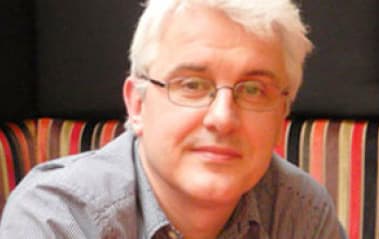
England's crowning moment ends in chaos. Of course it does. And then the English players learn that their visas have expired, so playing two days later in a rescheduled game will be impossible for them. The fictional final will involve two teams whose managers have been more careful with their paperwork, Germany and Brazil. And if fans of the real English team were disappointed over again, at least they weren’t surprised.
Twenty-four years after chaos sidetracked the end of the World Cup he’d imagined for the fun of it, I asked Richard Wilson if there was anything about the radio drama and its inspiring theme that he wished had gone differently.
"Now, you know, there’d be chance of some kind of viral pick up on it, but there weren’t many avenues for getting the song out," Wilson says. "Because we did a full three-minute song, with a verse and chorus and things. And it would have been nice to get that out. As England songs go, it’s wasn’t bad at all."
It certainly was not.
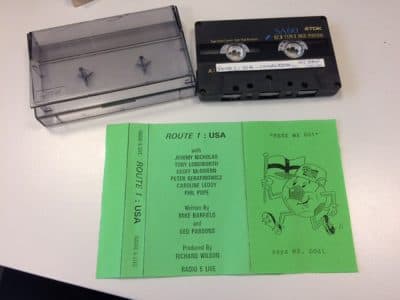
Stirring, at worst. At least in the World Cup as imagined by the BBC’s Light Entertainment Division, England did make it all the way to the final. And this time around, in Russia, the number of teams in the tournament having increased. England finds itself in ... wait for it ... Group G.
Whether England will, in fact, manage to win the respect and admiration of their supporters by winning the World Cup this summer remains to be seen. But Richard Wilson, who has gone on to work in television, is delighted that his 1994 creation is remembered, at least by us.
"It was a really enjoyable thing to make," Wilson says. "I kinda look on it as one of the best things I’d made when I worked in radio."
Me, too.
This segment aired on June 30, 2018.
